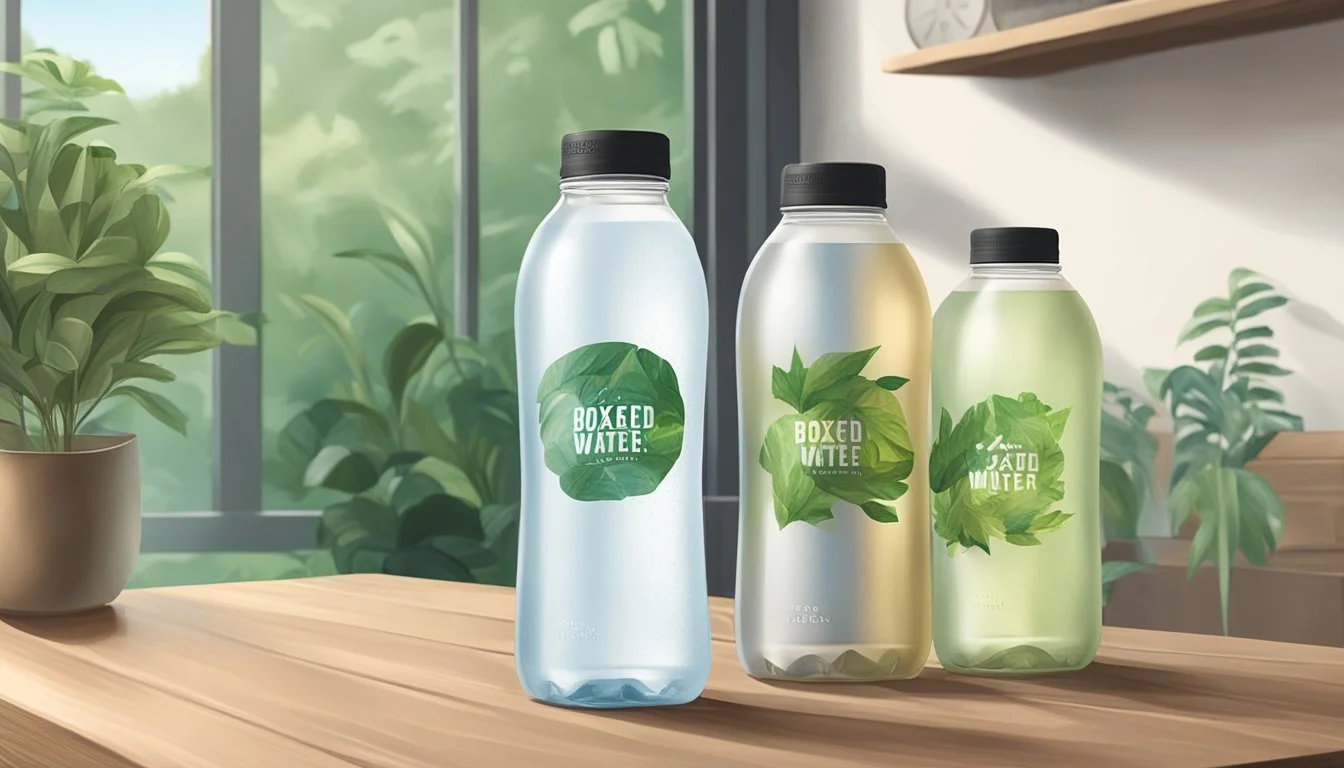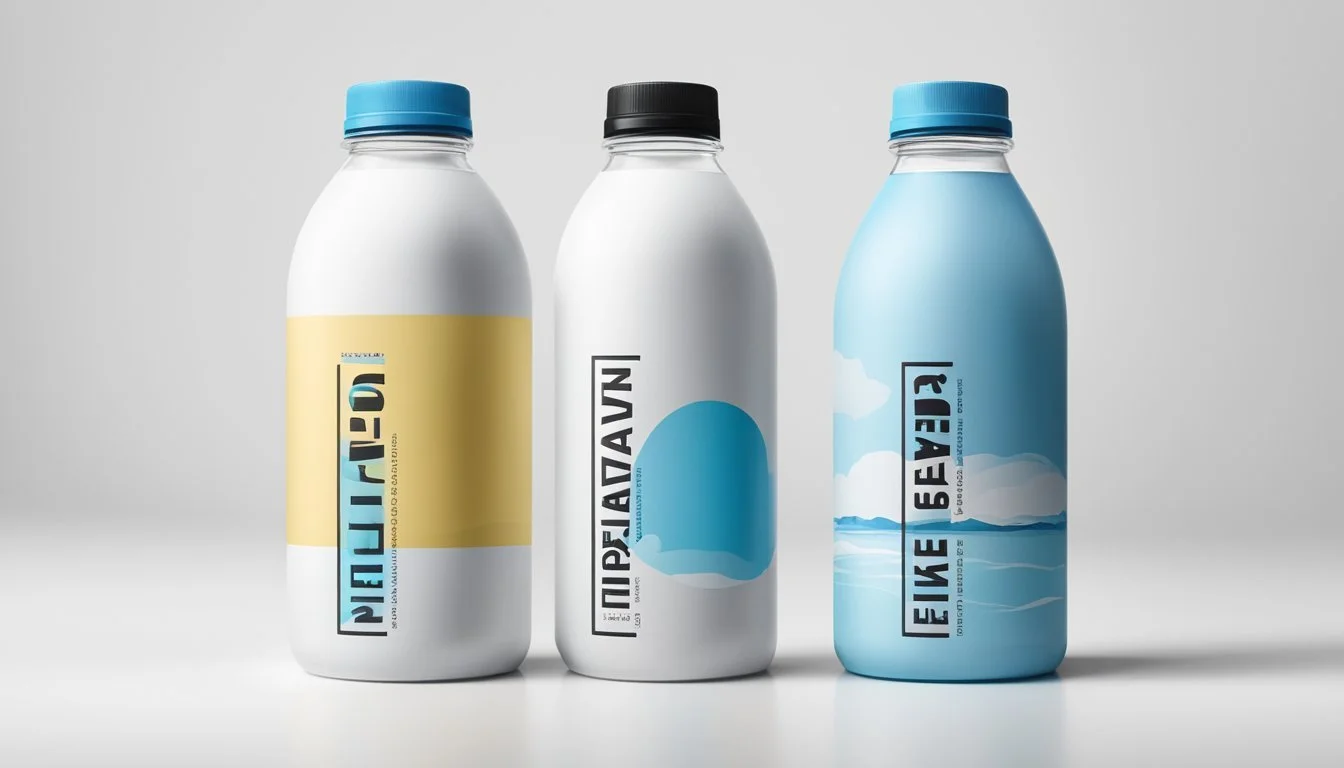Boxed Water vs. Origin
Evaluating the Best Bottled Water
The debate between boxed water and bottled water is more than a trend in the beverage industry; it's about making informed choices that impact both health and the environment. Boxed Water Is Better, with its crisp and refreshing taste, offers a sustainable alternative to traditional plastic bottled water, which contributes significantly to environmental pollution.
Boxed water, like the one offered by Boxed Water Is Better, uses paper-based packaging and a small amount of plastic. This potentially reduces its environmental footprint compared to plastic bottles, which are notorious for their long decomposition rates. Comparatively, traditional bottled water, while convenient and widely available, often falls short in sustainability efforts.
Choosing the right water isn't just about taste or brand; it's also about making a decision that aligns with environmental values. By switching to boxed water, consumers not only enjoy the benefits of clean and refreshing hydration but also contribute to reducing plastic waste.
Background on Boxed and Bottled Water
Examining both boxed and bottled water reveals the shifts in packaging methods, the environmental costs of traditional bottled water, and the development of more sustainable alternatives.
Evolution of Packaged Water
Packaged water has origins dating back to the 18th century with mineral water sold for medicinal purposes. By the late 20th century, plastic bottles became the dominant form, driven by convenience and portability.
Companies such as Evian and Fiji quickly capitalized on this trend, emphasizing purity and health benefits. This shift led to immense growth in the bottled water industry. However, as environmental concerns surfaced, newer, more sustainable packaging solutions, like boxed water, began to emerge.
Traditional Bottled Water and Environmental Concerns
Traditional bottled water is primarily packaged in plastic bottles, which create significant environmental problems. Plastic pollution is a major issue, with millions of tons of plastic waste entering our oceans annually. Plastic bottles are largely non-biodegradable and can take hundreds of years to decompose.
Additionally, the production of plastic bottles uses vast amounts of fossil fuels and water, contributing to environmental degradation. The carbon footprint associated with the manufacturing and transportation of plastic bottles further exacerbates ecological damage.
Boxed Water as an Alternative
Boxed water offers a more sustainable alternative to traditional bottled water. Packaged in cartons made from renewable resources, boxed water aims to reduce plastic pollution. These cartons typically consist of a mix of sustainable paper, aluminum, and plastic film, designed to be recyclable.
Boxed Water Is Better, a notable brand, launched in 2009, stands at the forefront of this movement. Their cartons contain 74% paper, providing a lower environmental impact compared to plastic and aluminum.
By focusing on sustainable packaging, boxed water addresses both the demand for convenience and the need for environmental responsibility. This innovative solution could potentially mitigate some of the ecological issues associated with plastic bottled water.
Comparative Analysis
A detailed comparison between Boxed Water and Origin covers aspects like materials used in packaging, their sustainability, and the health implications for consumers.
Material and Design
Boxed Water uses cartons made primarily from paper, a renewable resource. These cartons are 92% plant-based and feature a milk box-style design, which is both functional and visually appealing.
Origin, on the other hand, typically relies on plastic bottles, which are lightweight and durable but less environmentally friendly. While plastic bottles can be convenient, they contribute significantly to plastic pollution if not properly recycled.
Summary Table:
Aspect Boxed Water Origin Material Paper Plastic Design Milk Box-style Standard Bottle
Sustainability and Environmental Impact
Boxed Water boasts a lower carbon footprint due to its paper-based packaging. This renewable resource promotes sustainability by reducing reliance on fossil fuels. Additionally, the company emphasizes recyclability and minimizing single-use waste.
Origin's plastic bottles are often criticized for their environmental impact. Although some progress has been made with recycled plastics, the process remains less sustainable compared to Boxed Water’s model.
Health and Safety Considerations
Boxed Water’s packaging minimizes exposure to chemicals often associated with plastic bottles, making it a safer choice for consumers concerned about health. The cartons are BPA-free, contributing to the overall safety profile.
Conversely, Origin's plastic bottles may contain substances like BPA, which has been linked to health issues. While many brands have moved to BPA-free plastics, concerns about microplastics and other contaminants remain.
In summary, Boxed Water offers eco-friendly packaging and fewer health risks. Origin provides convenience but at a potentially higher environmental and health cost.
Economic and Consumer Perspectives
The economic and consumer perspectives highlight cost, convenience, and consumer preferences. This analysis is essential for understanding the appeal of Boxed Water vs. plastic bottles.
Cost and Convenience
Boxed Water tends to be more expensive than traditional plastic bottles. Consumers pay a premium for its eco-friendly packaging. Plastic bottles benefit from lower production costs, making them cheaper and widely available.
Convenience plays a critical role in purchasing decisions. Plastic bottles are lightweight and easily found in vending machines, supermarkets, and convenience stores. On the other hand, Boxed Water can be less convenient due to limited availability and potentially bulkier packaging. Consumers looking for water on the go often choose plastic for its ease of access and portability.
Consumer Behavior and Preferences
Consumer behavior is shifting towards more sustainable options. Eco-conscious consumers increasingly prefer alternatives to single-use plastic bottles. This movement has driven the market towards products like Boxed Water.
Preferences vary based on multiple factors. Some consumers prioritize environmental impact and are willing to pay extra for Boxed Water. Others favor cost and convenience, sticking with traditional bottled water. Reusable water bottles are another choice, appealing to those focused on reducing plastic waste and saving money over time. This dynamic market reflects a growing trend towards sustainable drinking water solutions.
Health and Hydration
Health and hydration are critical factors when considering bottled water. The quality of the water, its purity, and the role it plays in daily hydration all contribute to choosing the best option.
Quality of Water and Purity
Boxed Water purifies its product using ultraviolet light, carbon filtration, and reverse osmosis. These methods ensure the removal of impurities and potential contaminants, including arsenic. This makes Boxed Water a clean and safe choice for daily consumption.
Origin Water, depending on the source, may offer naturally occurring minerals and a balanced composition. Some versions of Origin Water come from natural springs known for their purity. Ease of availability and natural filtration methods also play a role.
Chlorine and fluoride levels are another consideration. While tap water often contains these chemicals to ensure safety, minimal to no chlorine and fluoride are found in purified or spring water options. This can be beneficial for those sensitive to these additives.
Hydration and Use in Lifestyle
Hydration is essential for overall health. Both Boxed Water and Origin Water aim to provide high-quality drinking water to support daily hydration needs.
Boxed Water offers a convenient and eco-friendly option for those always on the go. The packaging is designed for easy transport and use, catering to active lifestyles.
Origin Water's distinct advantage lies in its natural mineral content. This can enhance taste and provide additional health benefits. Athletes and health-conscious individuals may find the presence of electrolytes and minerals conducive to their hydration strategies.
Consumers should consider their daily habits and specific hydration needs, whether it's for daily activities, sports, or simply ensuring an adequate intake of pure water. Both brands provide excellent options tailored to different lifestyles and preferences.
Environmental and Global Impacts
Considerations around the environmental and global impacts of bottled water focus on several key aspects, including the carbon footprint of packaging and efforts in sustainable forestry.
Carbon Footprint and Greenhouse Gas Emissions
Boxed Water uses paper-based packaging that significantly reduces its carbon footprint compared to traditional plastic bottles. The cartons, mainly composed of paper, are derived from renewable resources. This shift results in fewer greenhouse gas emissions during production as paper manufacturing emits less carbon than plastic.
In contrast, plastic bottles have a higher carbon footprint due to the oil refining process required to produce plastic. Moreover, recycling rates for plastic are lower, leading to more waste and environmental degradation. Boxed Water, therefore, offers a more sustainable alternative, contributing less to global warming.
Tree Planting and Sustainable Forestry
Boxed Water emphasizes planting trees and promoting sustainable forestry. For every carton sold, the company contributes to reforestation efforts, planting trees in various locations. This initiative aims to replenish natural resources, support habitats, and combat climate change.
Their commitment to using sustainably sourced paper also ensures that the production process does not deplete forests. Partnering with certified sustainable forestry programs maintains a balance between consumption and environmental stewardship. By choosing Boxed Water, consumers support practices that prioritize the health of the planet and the preservation of biodiversity.
Industry Innovations and Collaborations
The bottled water industry is witnessing a surge in innovative solutions and strategic collaborations aimed at enhancing sustainability and recycling capabilities. Companies are leveraging new technologies and partnerships to offer eco-friendly and efficient packaging options.
Partnerships and Certifications
Partnerships play a critical role in advancing sustainability in the bottled water sector. Boxed Water Is Better has established alliances with organizations like Alaska Airlines, which exclusively serves their water on flights. These collaborations amplify the reach of sustainable practices.
Certifications are another vital area. Boxed Water's use of 92% plant-based materials in their packaging underscores their commitment to renewable resources. Similarly, Just Water’s carton combines paper with sugarcane-based plastic, holding various sustainability certifications to assure consumers of their eco-friendly approaches.
Advancements in Recycling Technologies
Recycling innovation is pivotal for reducing environmental impact. Developments in carton recycling technologies have enabled more efficient processing of composite packaging materials. These advancements ensure the separation and recycling of paper, aluminum, and plastics used in products like Boxed Water.
Further, the rise of reusable bottles and increased renewable content in materials, such as plant-based plastics, marks significant progress. Companies are continuously seeking innovations that minimize petroleum-based plastic dependency, enhancing sustainability in the long run.






